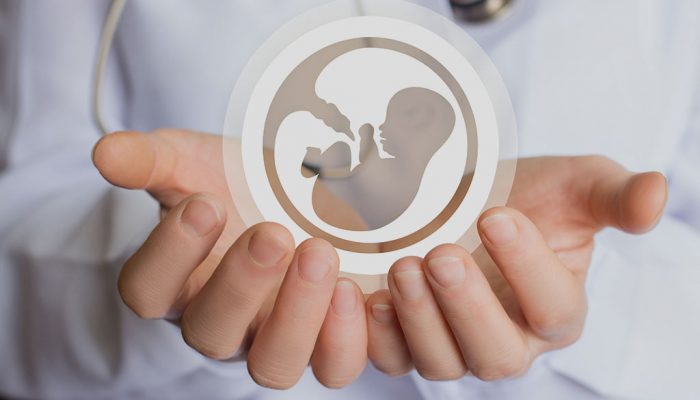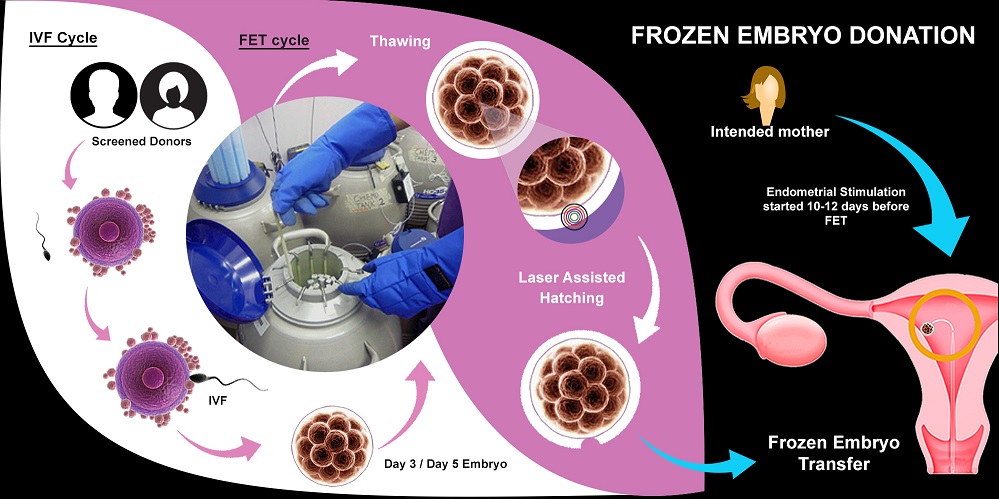What is Embryo Donation?
Embryo donation is a form of third party reproduction. It is defined as the giving—generally without compensation—of embryos remaining after one family’s in vitro fertilisation to either another person or couple for implantation or to research. Where it is given for the purpose of implantation, the donation is followed by the placement of those embryos into the recipient woman’s uterus to facilitate pregnancy and childbirth in the recipient. The resulting child is considered the child of the woman who carries it and gives birth, and not the child of the donor. This is the same principle as is followed in egg donation or sperm donation. Most often, the embryos are donated after the woman for whom they were originally created has successfully carried one or more pregnancies to term.
Embryo donation is a new path to parenthood that allows the opportunity for a couple that has struggled with infertility to experience the wonders of pregnancy and the joy of giving birth. Couples often reflect that building a family in this way is relationally similar to adopting a child at the earliest possible stage of life. This is why the term embryo adoption is sometimes used interchangeably with the term embryo donation.
CONTACT US
Adoptive Parents in Embryo Donation?
Communication exchange possibilities in embryo donation are similar to the wide varieties of openness options that are available in traditional infant adoption. The genetic donors and parents agree upon a level of communication and openness that they are both comfortable with continuing. Both embryo donors and recipients are able to choose their desired amount of communication prior to being matched. Matches can therefore be made with these preferences in mind. Once a match is made, a contract is developed i-anonymous or anonymous.

How does embryo donation work?
First, a woman must consult with her reproduction endocrinologist to confirm that she is able to physically proceed through embryo donation and carry a baby to term. Physically, the embryo donation process is similar to proceeding through the second half of an IVF cycle (no egg stimulation is necessary). Assessment, education and on-going support should be an essential part of every embryo donation plan, both for the embryo donors and the embryo recipients. Included in this process is often the opportunity for both parties involvment in the matching process and in many cases determination about communication exchange and openness planning.
Frozen Embryo Donation
Embryos produced using oocytes and sperm of screened donors. This allows us to provide embryo donation services. This service is especially useful for couples who are both suffering from infertility or for couples who do not want to go through extensive IVF treatment cycles and are ready to adopt an embryo that is not genetically related to them. The identity of the Egg and Sperm donor is not revealed.

